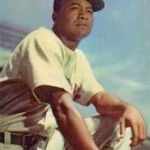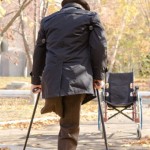Weekly Wrap Volume 70
 Why Children Get Summers Off of School
Why Children Get Summers Off of School
The commonly touted explanation for students having summers off from school dates back to a time when the United States’ economy relied heavily on agriculture in order to survive. Students needed to leave school in the summer in order to work on the farm alongside their families. The U.S. is no longer the agrarian nation that it once was, so why do students still get the summer off from school? Well, that is because the idea that the modern school year is based off of one where students needed to work on the farm during the summer is false. The majority of farming work occurs in either the spring or fall, so schools in rural parts of the United States during and before… (more)
 That Time Detroit Gave Saddam Hussein the Key to the City
That Time Detroit Gave Saddam Hussein the Key to the City
In 1980 America, the Cold War was still very much hot, Ronald Reagan was elected President, and the United States’ Olympic hockey team shockingly upset the USSR in what would be dubbed “The Miracle on Ice.” Oh, and the new president of Iraq, Saddam Hussein, was given a key to the city of Detroit. How did this come to pass? Honoring an individual with a key to the city is actually a more tangible variation of another practice known as “Freedom of the City” or, if conferred onto the military, “Freedom of Entry.” More commonly called this in Europe, the practice traces back to ancient Rome and their honoring of the sacred boundary known as the “pomerium.” The pomerium… (more)
 The Forgotten Hero: Larry Doby
The Forgotten Hero: Larry Doby
On April 15, 1947 in Brooklyn, New York, the great Jackie Robinson broke the color barrier and became the first African-American in 67 years to play in the Major Leagues. (Yes, Robinson was not the first, as is often stated.) Less than three months later, on July 5, 1947 in Cleveland, Ohio, Larry Doby became the second African-American ball player break the color barrier, and the first on an American League team. Although history tends to forget Doby’s much-less hyped debut and subsequent stellar performance, his life, career, and path to the majors were just as interesting and courageous as Robinson’s. As Dave Anderson wrote in a 1987 New York Times article, “In glorifying those who are first, the second is often forgotten … Larry Doby integrated all those American League ball parks where Jackie Robinson never appeared. And he did it with class and clout.” Records point to Larry Doby being the grandson of Burrell Doby, a South Carolina native who was born into slavery in 1852. There are few othe… (more)
In addition to being an occasional biological necessity, human flatulence has served a variety of uses, including as a way to clear a room, entertain friends, torture a sibling, and tease a child (pull my finger). But while some humans have elevated farting to an art form (see: The Most Famous Farter in History), perhaps no entire species has elevated farting quite so high as the school-swimming herring, who use their butt vapors to communicate. Bubbling out of a herring’s back end, the fish farts come fast and furious, and as such scientists have named them “Fast Repetitive Tick sounds” or (I’m not making this up) FRTs. Occurring in “stereotyped bursts of 7-65 pulses . . . lasting 0.6-7.6″ seconds at a time, the high frequency FRTs are emitted, as with many human farts, in “a single continuous burst train rather than intermittent bursts.” Believed to be the result of “gas expulsio… (more)
 The Tragic Life of JFK’s Sister
The Tragic Life of JFK’s Sister
On January 20, 1961, the newly-elected President John F. Kennedy, at his inauguration in front of the Capital, told Americans to “ask not what your country can do for you, ask what you can do for your country.” Over 800 miles away, in Jefferson, Wisconsin in an institution called “St. Coletta School for Exceptional Children” lived a 43 year old woman, who perhaps was listening to the address on the radio. Her name was Rosemary Kennedy and she was President Kennedy’s big sister. Rose Marie (“Rosemary”) Kennedy, born on September 13, 1918, was the third child and first daughter for Joe and Rose Kennedy. No source could quite pinpoint why Rose Marie had issues, but they were apparent very early on. As… (more)
Bonus Quick Facts:
- On February 10, 1355 in Oxford, England, Walter Spryngeheuse and Roger de Chesterfield, two students at Oxford University, got in an argument with tavern owner John Croidon over the quality of the drinks he was serving. In the end, drinks were thrown in the face of Croidon, after which the two students attacked him. Soon the fight spread, with local townspeople on one side and Oxford students on the other, including the students assaulting the mayor of Oxford, John de Bereford. The riot lasted two days, leaving 63 students and about 30 locals dead and many more injured. For the next 470 years, the mayor of Oxford and its councilors had to march through the streets of Oxford on February 10th each year with bare heads, as well as give one penny annually for each of the students killed. This finally ended in 1825 when the mayor refused to do the penance.
- For a period of 50 years in the 4th century B.C. a small force of 300 elite Theban soldiers dominated Grecian battlefields. What makes this band of brothers unique in history is that it was comprised entirely of male lovers, with each pair comprising of an erastes (the older man and mentor, called “lover”) and eromenos (the younger male and trainee, called “beloved”). The deep attachment this pairing forged between the two males was seen as a military advantage. Indeed, the Sacred Band were an incredible fighting force. For instance, the Band’s first victory was against a much larger Spartan force in 375 B.C., with one of the Band’s soldiers, according to Plutarch, remarking, “We have fallen into our enemies’ hands!” To which the leader of the Band, Pelopidas, remarked, “Why any more… than they into ours?” The Sacred Band crushed the much larger Spartan force; the first time in recorded history a Spartan army had been defeated by an army with inferior numbers. Their extreme loyalty to one another ultimately led to their utter defeat in 338 B.C. at the Battle of Chaeronea, when a young Alexander the Great, under his father Philip II of Macedonia, managed to defeat them. Because they would not leave one another or their fallen partners to retreat, the entire Band was killed. According to Plutarch, the victor, Philip II, wept over their bodies. Later, a massive stone lion was erected over their burial site.
- Contortionists who are often called “double jointed” aren’t actually double jointed. Rather, they generally suffer from some condition such as Ehlers-Danlos syndrome, which is a condition that occurs about 1 in every 5,000 births and, depending on the type and severity, can be life threatening, with one of the most common reasons why being spontaneous arterial rupture. Other conditions that may result in a “double jointed” individual include Marfan syndrome, Loeys-Deitz syndrome, misaligned joints or other joint abnormalities, none of which are the result of having literal double joints. As such, a better term is “hypermobile joints.”
- Pamela Anderson was in the spotlight quite literally from day one of her life, being named Canada’s “Centennial Baby,” supposedly the first baby born on July 1, 1967, Canada’s 100th birthday.
Other Interesting Stuff:
 The Truth About Prepositions and the End of Sentences
The Truth About Prepositions and the End of Sentences
A great man once said, “This is the sort of English up with which I will not put.” Eloquently highlighting the ridiculousness of strictly adhering to the rule against ending a sentence with a preposition, Winston Churchill may not have realized that his defiance is supported by history. As it turns out, there was never any such generally recognized rule. So where did the idea that you shouldn’t end a sentence with a preposition start? Many writers in Restoration Era England (1660-1689), and in particular “Glorious John” Dryden (one of the greatest poets, dramatists and literary critics of the 17th century), believed they had vastly improved the quality of English… (more)
 The People Who Want to Become Amputees
The People Who Want to Become Amputees
Body Integrity Identity Disorder, or BIID, is a condition where a person feels an overwhelming desire to become an amputee. Some also consider it to include those who feel a desire to have some sort of other disability like becoming paralyzed or deaf. In the case of those desiring to become amputees, the limb that they want to amputate is a healthy, functioning body part that they simply believe does not belong to them. Individuals with BIID tend to be very secretive about their condition, but it’s estimated that there are several thousand people worldwide suffering from this. One of the first purported cases of something like BIID was recorded in a medical textbook from 1785. A man from England held… (more)
 How Do Astronauts Go to the Bathroom in Space?
How Do Astronauts Go to the Bathroom in Space?
Ever since Yuri Gagarin was first launched into space on April 12, 1961, engineers and space travelers have had to face the problem of how to go and where to put the waste. In the early years of the National Aeronautics and Space Administration (NASA), manned space flights were to be so short that the astronauts were reasonably expected to hold it. For example, the mission that sent the first American into space, Mercury-Redstone 3 inFreedom 7, was planned to last only 15 minutes. Forgetting to expect the unexpected, NASA engineers assumed that Freedom 7’s pilot would be free of the cockpit long before nature called. Yet on the morning of May 5, 1961, after astronaut Alan Shepard was forced to sit through several hours of delays, he… (more)
 Nobel Prize Winner Barry J. Marshall in Part Proved What Causes Ulcers by Ingesting the Bacteria He Thought Was Causing Them
Nobel Prize Winner Barry J. Marshall in Part Proved What Causes Ulcers by Ingesting the Bacteria He Thought Was Causing Them
When it comes to science, we think there’s a saying that is fairly applicable, “who dares, wins”. Fans of military history may recognise that as the motto of the Special Air Services (SAS). However, we feel scientists and researchers deserve to use it just as much, because sometimes they take risks too. Just ask Barry J. Marshall if you don’t believe us. Marshall is known primarily for his work revolving around peptic ulcers. If you don’t think that sounds important, ask someone who has had them how painful they are and then shield your groin from the barrage of kicks as they try to give you some idea of the level of pain. Beyond the agony and the decreased quality of life it can cause, peptic ulcers have been linked to increased chances of one getting stomach cancer. Prior to Marshall’s work, it was commonly accepted by th… (more)
 Why People Breathe Into a Paper Bag When Hyperventilating
Why People Breathe Into a Paper Bag When Hyperventilating
It’s all about pH balance. No, not the skin pH that keeps some deodorants “strong enough for a man but pH balanced for a woman”- rather the pH within the body. The human body has two main mechanisms for controlling pH, one involves the kidneys, the other involves breathing. When our body is working, or not, it requires a specific amount of oxygen to maintain that level of work. When the body receives more oxygen than it needs, the result can be what’s known as respiratory alkalosis (high pH). One of the most common causes is hyperventilating. The point of breathing into a bag is to “re-breathe” your exhaled carbon dioxide (CO2) in the hopes of bringing your body back to a normal pH level. The “potential of hydrogen”, or “power of hydrogen” depending on what historian you read, (pH) is a measurement of the amount of hydrogen ions within a substance- basically measuring how acidic or “basic” something is. The scale ranges from 0-14 with 7 being neutral. Anything lower than 7 is more acidic, anything higher, is more basic. Unlike some scales that are linear, this one is logarithmic. This… (more)
This Week’s Podcast Episodes:
- Podcast Episode #311: The Body of Elmer McCurdy
- Podcast Episode #312: The Skeletons in Ben Franklin’s Closet
- Podcast Episode #313: Abracadabra
- Podcast Episode #314: Howard Hughes and His Money
- Podcast Episode #315: Miss Unsinkable
Quote of the Week:
- “Human history becomes more and more a race between education and catastrophe.” -H.G. Wells
| Share the Knowledge! |
|





